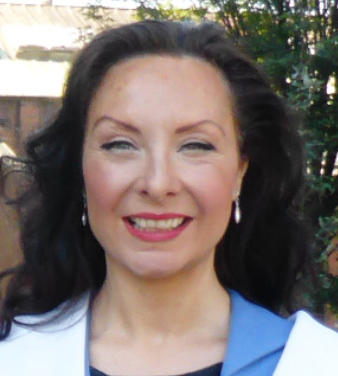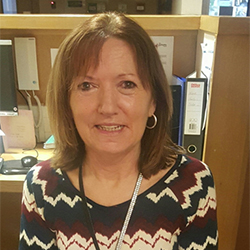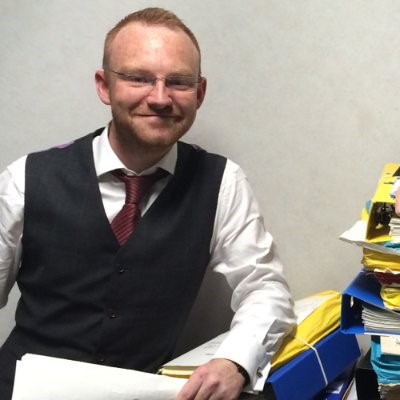Five-Day Course:
Module 1
4 two-hour online webinars on values, principles, research and key concepts. Thursday 3rd, 10th, 17th, 24th April 2025 10 am–12noon. Students will be asked to read material/view videos between sessions and be prepared to share their reflections.
Module 2
3 days in-person skills training at the University of Strathclyde Tuesday 6th – Thursday 8th May 2025.
Strathclyde University
1. Why this Course?
There is increasing demand for restorative practices in a wide variety of contexts. The Scottish Government is committed to making restorative service widely available. Restorative Practices (including Restorative Justice) is a process that brings together those harmed and those responsible for the harm to safely discuss the harm and how it might be set right.
International research suggests RJ can help people to recover from harm, encourage those responsible to think again, and provide a more satisfying experience for all involved. It can be used both to respond to harmful acts and to prevent harm.
This Intensive Course offers participants the opportunity to come together to learn and develop the skills required to facilitate restorative conferences and circles. It includes training in the engagement and preparation of people who have been harmed and people responsible for harm, their supporters and the community.
The course will be led by Professor Tim Chapman (Strathclyde University) who is widely recognised as one of the world’s leading trainers and thinkers in restorative justice.
Tim has been practising, researching, training restorative justice for over 25 years.
A previous Chair of the European Forum on Restorative Justice, Tim has delivered restorative justice and practices training in many parts of the world and has conducted and published extensive research. He has trained hundreds of professionals, including youth justice workers, prison officers, police officers, probation officers, social workers, community activists, and teachers.
He has engaged politically motivated prisoners and mafia prisoners in restorative processes and is currently acting as a restorative consultant and practitioner in two major projects addressing institutional sexual abuse.
He is writing a book on his research into the experience of victims of serious crime in restorative justice by victims and is currently conducting research into historical clerical child abuse.
Tim will be assisted by Tania Nascimento (Strathclyde University). She has undertaken restorative justice practice training, including in sensitive and complex cases, and has conducted research for the Scottish Government into RJ training needs, as well as into practical issues in the delivery of RJ. Her doctoral thesis conducted original research into the daily delivery of RJ in England and Wales. She is currently conducting research into historical clerical child abuse with Tim.
2. What distinguishes this course from others?
- Combines evidence-based practice with practice-based evidence.
The approach of this Essential Skills Course has been informed by Tim’s research into victims’ experience of restorative justice and his restorative practice with over 50 deeply traumatised people. It also incorporates findings of Tania’s research into how restorative practitioners manage their emotions (and the emotions of RJ participants) during difficult restorative processes.
- Increases victim participation and face-to-face meetings.
This course is designed to equip practitioners with the skills, knowledge and personal characteristics required to increase the uptake of victims in face-to-face restorative meetings and circles.
- Restores power and control.
The narrative dialogue approach enables people who participate in restorative processes to restore their power to address what matters to them.
- Facilitates conversation and dialogue rather than following scripts.
The course will encourage practitioners to feel confident about engaging in important conversations with those affected by harm without the aid of a script.
“Tim’s style of teaching the material is very engaging; using real-life examples of how the theory behind restorative practice can be applied. Tim provided the class with the opportunity to apply the knowledge we acquired via role-play which was challenging, enjoyable and extremely useful. I would definitely recommend this course to anyone who has an interest in restorative justice and wishes to get a better understanding of how to apply the what they learn in real-life.”
Ailbhe Griffith, Restorative Justice International Global Advisory Council. (Film: The Meeting).
"The course was great! I really enjoyed the creative culture of learning. It has been a really worthwhile experience and hopefully has helped me in developing our services to young people and their communities." Ella Brown, Criminal Justice Social Worker, North Lanarkshire
3. Who is the Course for?
The Intensive Course is for a very wide range of people in Scotland and across the globe, including for example:
- lawyers
- social workers
- criminal justice workers, probation/corrections officers
- teachers and those working in education
- faith groups
- youth and community workers
- people working in prisons and custodial settings
- members of the third sector
- people working in education
- recent graduates wishing to add distinctive skills to complement their academic repertoire.
"This is, in my opinion, one of the best and most serious and comprehensive courses there is for RJ practitioners in Europe, if not the world, today." Dr Estelle Zinsstag, Senior researcher, University (K.U.) Leuven, Belgium
“Tim Chapman’s reflective activities encouraged collaboration with other attendees. Tim’s style of facilitation is comfortable, fun and inclusive thereby ensuring dynamic, rich and thought provoking discussion. This course is highly recommended.” Dr Taryn Moir, Acting Depute Principal Educational Psychologist.

3. What Will You Gain from the Course?
RJC Accreditation. This course is accredited by the Restorative Justice Council of England and Wales as a part qualification for accreditation as a practitioner. (There is not, as yet, separate practitioner accreditation in Scotland).
This course taught me a new way of thinking. Under expert tuition, I was able to learn invaluable new skills and practices that I have been able to apply to my job. I cannot recommend this course enough.
Scot, Dignan, Lawyer
I recommend this excellent course to anyone interested in new approaches to justice. This innovative course enables you to learn from key figures in the RJ movement about how to facilitate RJ encounters.
It also offers participants an opportunity to join the increasingly active movement developing RJ in Scotland.
Kate Graham, Scottish Women's Rights Centre
5. Course Content
Learning objectives
- To understand and apply the values and principles of the Balanced Model of Restorative Justice in a range of contexts;
- To be capable of using the skills and techniques of the narrative dialogue method to achieve a high level of engagement and face to face participation in restorative processes.
- To understand and facilitate restorative conferences and circles according to high standards of practice;
The learning methods are experiential and participative and participants will learn together. Guided by theory and demonstrations by Tim, participants will work in small groups through each of the stages of the restorative process through scenarios set in different contexts (criminal justice, youth justice, schools, community, families and residential care) depending upon their interests.
Each participants will be sent a workbook summarising the theoretical content, clearly describing the stages of the process specifying the skills required at each stage, outlining scenarios and learning exercises, providing references to further reading and spaces for notes.
The course contains four modules: two modules in Part One (online) and two modules in Part Two (in person).



